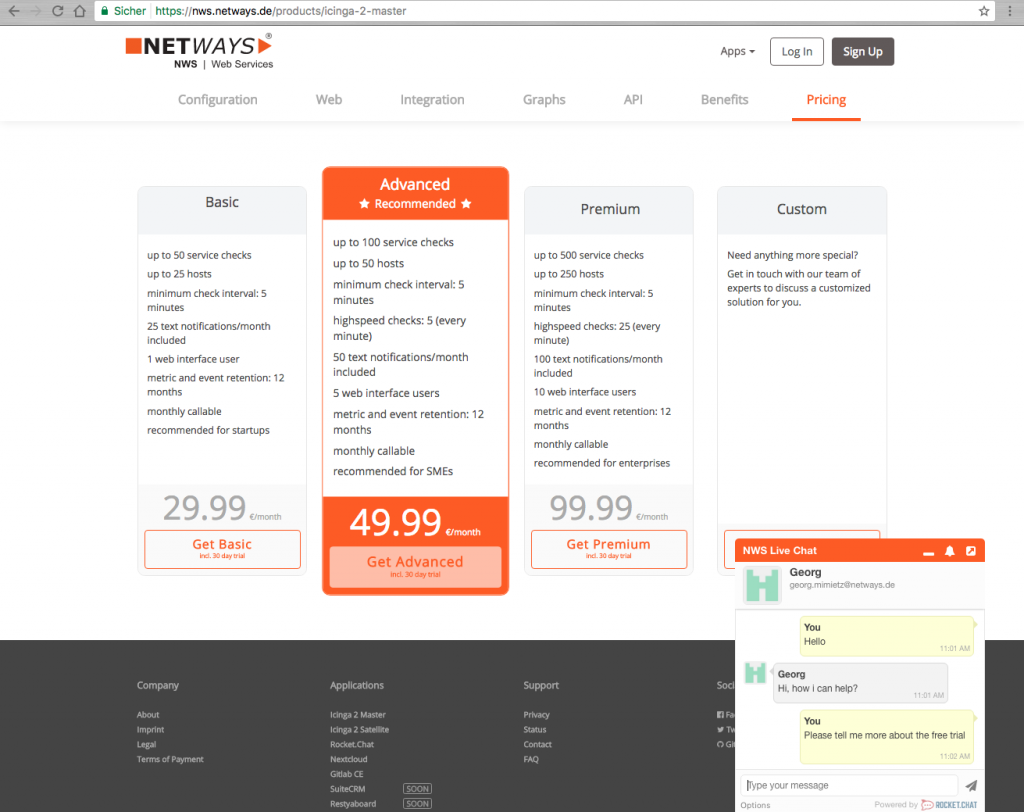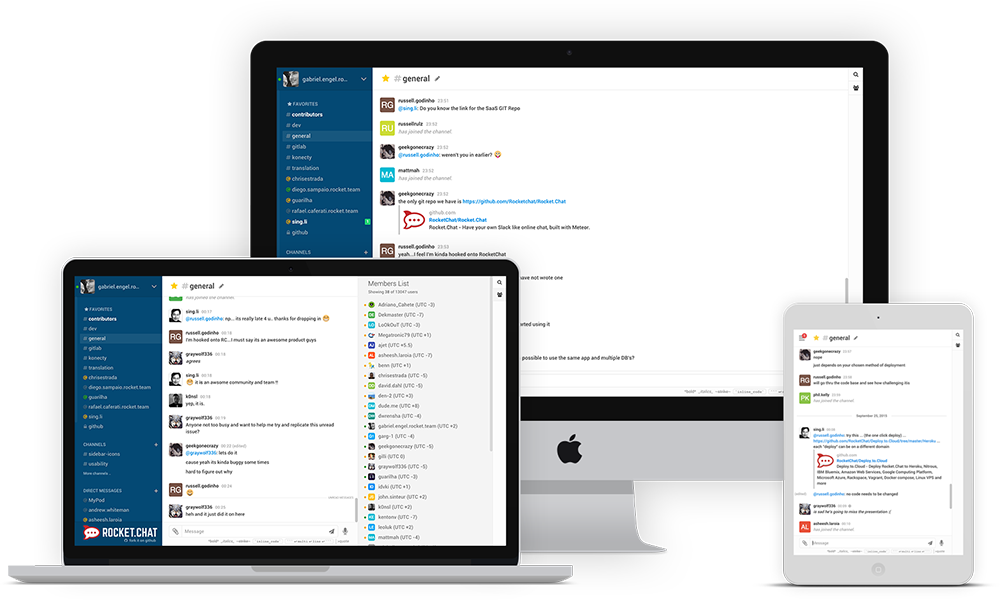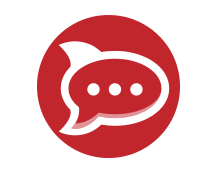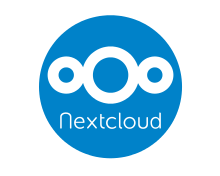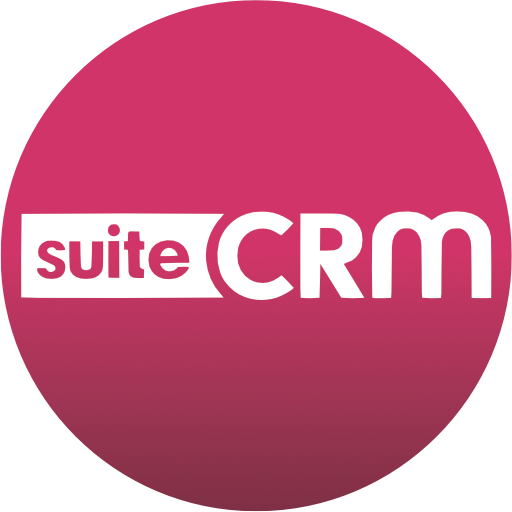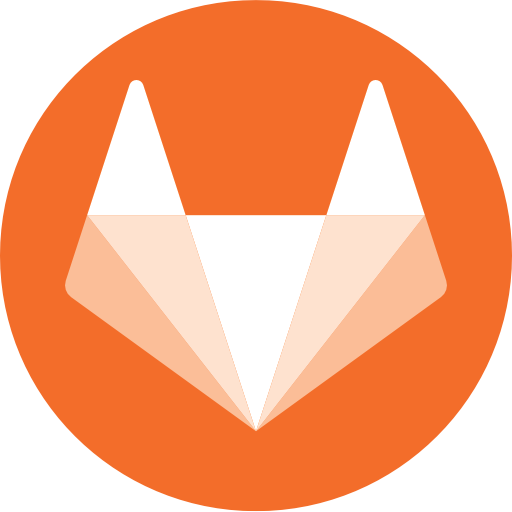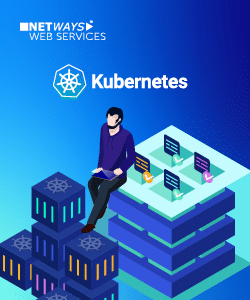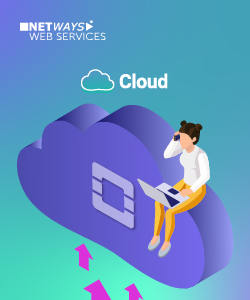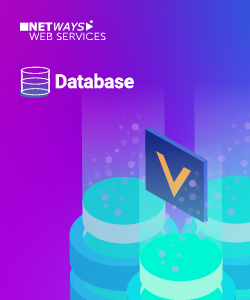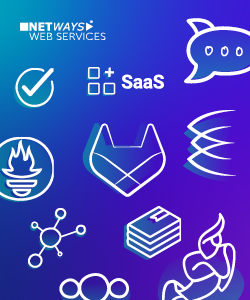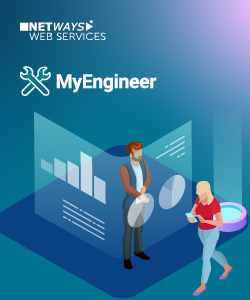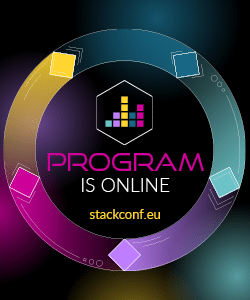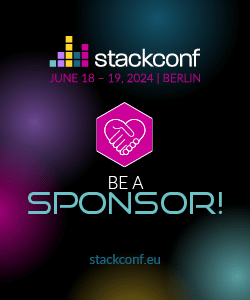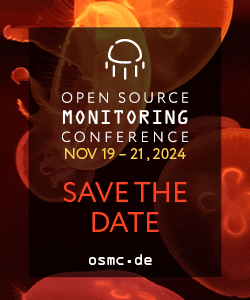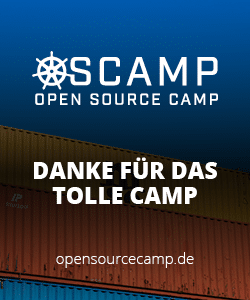 Team oriented Instant-Messaging has become quite popular in recent years with Slack. Its success is undeniable: more than 6 million people use Slack every day.
Team oriented Instant-Messaging has become quite popular in recent years with Slack. Its success is undeniable: more than 6 million people use Slack every day.
The name Slack is an acronym for „Searchable Log of All Conversation and Knowledge“ and might be an understatement to its todays capabilities.
But nevertheless searching through all conversations, files, and users is where it still shines.
Next to that, the main functionality is the team/group orientated messaging and the ability to integrate it with variety of other online services like Dropbox, Google Drive, GitHub etc. Some other cool features are (group) video calls and screen-sharing.
But Slack also comes with some limitations. You can use it for free, but you will be limited to access only the last 10000 messages.
Also the number of apps and integrations is limited and you can video chat only with one other user at a time.
To unlock those limitations you will have to choose one of the payment plans. And that’s where it can get expensive if you want to provide your growing company or a team with full featured accounts. For a team of 50 users you’ll have to spend at least 312 Euro per month.
One competitor of Slack is Rocket.Chat which is a open-source project that has been in very active development over the past years.
In this post I will briefly highlight the differences and the benefits of this chat solution in comparison to Slack.
Open Source
The first difference that I already mentioned is that Rocket.Chat is open source while Slack is not. Therefore you can access all its features for free and everyone can contribute to the development and implement new features. I have been watching the project on GitHub over the past year and there have been some great UI changes in the last couple of releases that gave it a more modern look and feel than before.
Self-Hosted
The fact that it is open-source makes it possible that you can download the software for free and install and run it on your own server. You are completely in control of where your chat data is stored. This can be an advantage if you know how to properly secure your server but it also can be of danger if you don’t. When it comes to security even Slack had some issues in the past with their service. In 2015 Slack was hacked – the hackers were able to access the main database for four days, giving them the chance to steal all user-profiles.
Customization
In Rocket.Chat you can personalize the whole design. You can even replace the Rocket.Chat icons with your own logos or add your own CSS styles, fonts and scripts.
Slack also provides some options to customize the look but not in the extend of what is possible with Rocket.Chat.
Roles and Permissions
With Slack you can specify which user-role a user should have in the Slack-Workspaces. Those are predefinded role-sets from Slack with different permissions.
Rocket.Chat takes it a step further. You have more presets and you even have the option to create you own role-presets.
Workspaces, Channels and OTR
In comparison to Slack, Rocket.Chat does not have anything similar like the Workspaces in Slack. But it has channels, private channels, direct messaging and even OTR (Off-the-Record) chats.
The last one is something that is currently not available in Slack. If you start a Off-the-Record session in Rocket.Chat with another user, all messages will be end-to-end encrypted and will be deleted after the session. This is perfect if you want to exchange some sensitive information with someone else.
Integrations, Bots and Apps
Slack features hundreds of apps that you can simply add with a few clicks. Some of them act as bots for other external services like for example Jira and Bitbucket.
This is something that Rocket.chat currently has not built in. But the Roadmap concerning Rocket.Chat bots looks very promising.
What you can do is install a Hubot on your server, hook it up to your Rocket.Chat and feed it with some scripts to achieve similar functionality.
There are already many hubot scripts on GitHub but it is just not as convenient to set up as installing an app in Slack.
Something else that both Slack and Rocket.Chat can do is Zapier integrations with other web services.
Rocket.Chat still has to catch up when it comes to the number of available Zapier integrations (10 for Rocket.Chat vs 100 for Slack) but there are already some useful integrations like Twitter, Github and Gmail. Another feature that Rocket.Chat has built in is a helpdesk chat called Livechat. This is a great feature if you have a WebShop or something similar where you would like to provide some additional support for your customers. You just have to enable it in Rocket.Chat and copy the Livechat script to your website. To learn more about it you should read Georgs blog post about that.
Summary
The benefits of Rocket.Chat are:
– the fact that it is open source and therefore free
– you can host it on your own server or on a server of the hosting provider you trust
– you have some additional freedom and control when it comes to visual customization and configuring user-roles
The downsides are:
– you will have to set it up on your own and manage stuff like backups, security and getting it fixed in case of a failure
– you don’t get the variety of apps and integration services as with Slack
If you are looking for a great managed Rocket.Chat solution you should have a look at our Netways Web Services and try Rocket.Chat 30 days for free.
And in case you didn’t know:
If you start both Rocket.chat and Icinga 2 Master a NWS integration job will kick in and configure both your apps so that your Icinga 2 Master will send monitoring alerts to a channel of your Rocket.Chat.
We also support Slack-Notifications in our Icinga 2 Master apps to send monitoring alerts directly to a provided Slack channel.

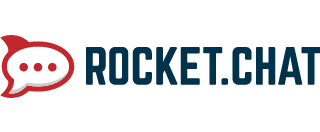 Rocket.Chat bietet neben der umfangreichen Vernetzung bestehender Teams auch ein ganz besonderes Feature, den Supportchat. Dieser eignet sich für Websitenbetreiber, um direkt und ohne Wartezeit mit dem Besucher kommunizieren zu können. In diesem Artikel gehe ich einmal auf die Einrichtung und Einbindung eines solchen Supportchats auf der eigenen Website ein.
Rocket.Chat bietet neben der umfangreichen Vernetzung bestehender Teams auch ein ganz besonderes Feature, den Supportchat. Dieser eignet sich für Websitenbetreiber, um direkt und ohne Wartezeit mit dem Besucher kommunizieren zu können. In diesem Artikel gehe ich einmal auf die Einrichtung und Einbindung eines solchen Supportchats auf der eigenen Website ein.